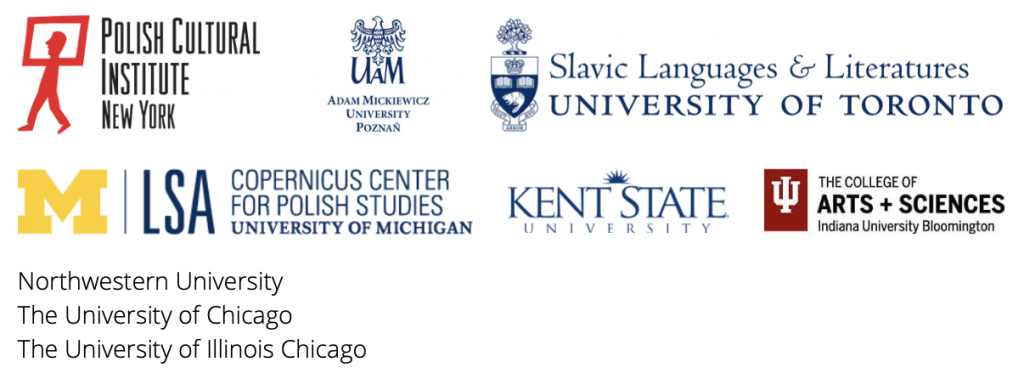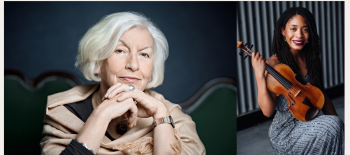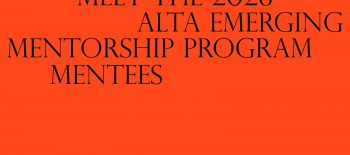August 2, 2021
Episode 7 and all video recordings will be available at:
Polish Cultural Institute New York YouTube
Encounters with Polish Literature is a new video series for anyone interested in literature and the culture of books and reading. Each month, host David A. Goldfarb will present a new topic in conversation with an expert on that author or book or movement in Polish literature. More about the Encounters with Polish Literature series and the timeline.
Zofia Nałkowska (1884-1954) was a modernist psychological realist novelist, a feminist, a politician in later life, and a motivator of culture through the salon she hosted from her home on 4 Marszałkowska Street in Warsaw during the interwar period. Born to a Warsaw family of socialist intellectuals, she was precocious and in her youth. In her diary at the age of 16 she described seeing herself as a novelist narrating events in the world in the third person, and while not all of her novels feature a third-person narrator, she maintained the practice of keeping a diary, transforming her experience into writing, narrating herself to herself, and drawing on her auto-narration in her fiction throughout her life. She spoke at the first Polish Women’s Congress in 1907 demanding equal sexual rights with men.
She lived through both World Wars and was a key figure in the vibrant cultural life of interwar Poland, introducing writers, composers, and artists to each other, and helping them advance their careers—most notably Bruno Schulz. She was the only female member of the Polish Academy of Literature and belonged to the Polish PEN Club, representing Poland at international PEN congresses abroad. After the war she remained in Poland and was twice elected to the Sejm (Polish parliament), but she never joined the Communist Party. Nałkowska was not exclusively engaged with women’s issues, but took a particular interest in the nature and consequences of war, and in the treatment of national minorities, putting Armenian refugees of the Genocide of 1915-16 at the center of her novel Choucas, visiting prisoners in Grodno whose stories would become folded into some of the characters and events in Boundary, and serving on the Commission for Investigating Nazi Crimes on Polish Soil, where she collected stories that would become part of Medallions.
This episode of “Encounters with Polish Literature,” starts off with some suggestions for students and budding critics about how to read a novel with the intention of writing about it—how to keep track of information and outline the structure of a work of fiction in a way that helps you make an argument about what it means and what makes it interesting.
Then with translator Ursula Phillips we look at Zofia Nałkowska’s particular kind of psychological realism, rooted in observation without laying claim to an objective knowledge of her characters’ thoughts. We consider her feminism, her views on sexual equality, abortion, the female body, and aging, and her idea of schematy, or patterns in social life, which may be seen as a precursor to Witold Gombrowicz’s idea of “form.” Phillips offers particular insight into the relationship between the diaries and her fiction, which sometimes seems closer to a diary itself, sometimes more like reportage or creative non-fiction. Phillips also relates her experiences in visiting some of the places that Nałkowska writes about, conveying a sense of the importance of literary travel for a translator’s work.
Selected English translations of Zofia Nałkowska:
Boundary. Tr. Ursula Phillips. DeKalb, Ill.: Northern Illinois University Press, 2016.
Choucas, An International Novel. Tr. Ursula Phillips. DeKalb, Ill.: Northern Illinois University Press, 2014.
Medallions. Tr. Diana Kuprel. Evanston, Ill.: Northwestern University Press, 2000.
The Romance of Teresa Hennert. Tr. Megan Thomas and Ewa Małachowska-Pasek. Foreword by Benjamin Paloff. DeKalb, Ill.: Northern Illinois University Press, 2014.
Recommended Background:
Borkowska, Grażyna. Alienated Women: A Study on Polish Women’s Writing, 1845 -1918. Tr. Ursula Phillips. Budapest: Central European University Press, 2001.
Robertson, Jenny. From Corsets to Communism: The Life and Times of Zofia Nałkowska. Edinburgh: Scotland Street Press, 2019.
Street, Mason. “Ursula Phillips on Polish Author Zofia Nałkowska” (interview). The Thornfield Review, 8 April 2017.
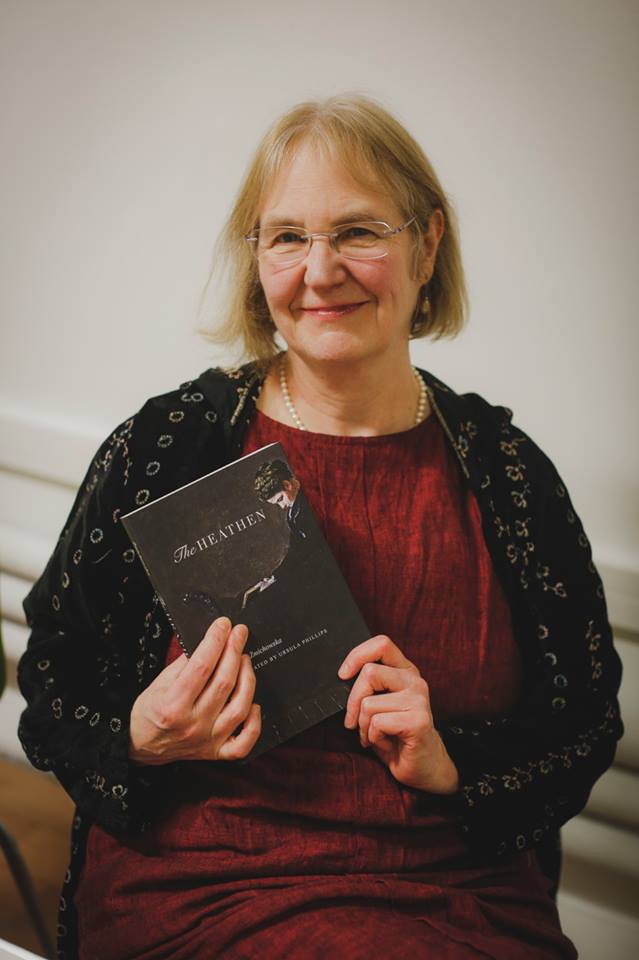
Ursula Phillips has a background in both Russian and Polish studies, and a doctorate from the Institute of Literary Research of Polish Academy of Sciences in Warsaw (IBL PAN). She worked for nearly twenty-five years in the Library of the School of Slavonic and East European Studies, which since 1999 has been part of University College London where she remains an Honorary Research Associate. For the past 15 years she has worked primarily as a translator of academic and literary works from Polish and has pursued research primarily on Polish women writers of 19th and early 20th century. She was the first English-language translator to take on one of the ambitious novels of Wiesław Myśliwski, Palace, published by Peter Owen Publishers in 1991. More recently she translated Maria Wirtemberska’s early 19th-century novel, Malvina and also Narcyza Żmichowska’s spiritual novel, The Heathen, both published by Northern Illinois University Press along with two novels by Zofia Nałkowska, Choucas and Boundary. Her latest published translation is Grzegorz Niziołek’s book The Polish Theatre of the Holocaust (Bloomsbury, 2019). She has co-edited several collections of essays on Polish Literature, including three on women’s writing with Urszula Chowaniec. Her most recent edited volume is Polish Literature in Transformation, edited by Ursula Phillips, with the assistance of Knut Andreas Grimstad and Kris Van Heuckelom (LIT-Verlag, 2013), which addresses developments in Polish literature 1989-2012. She is currently translating Jacek Dukaj’s novel, Ice.
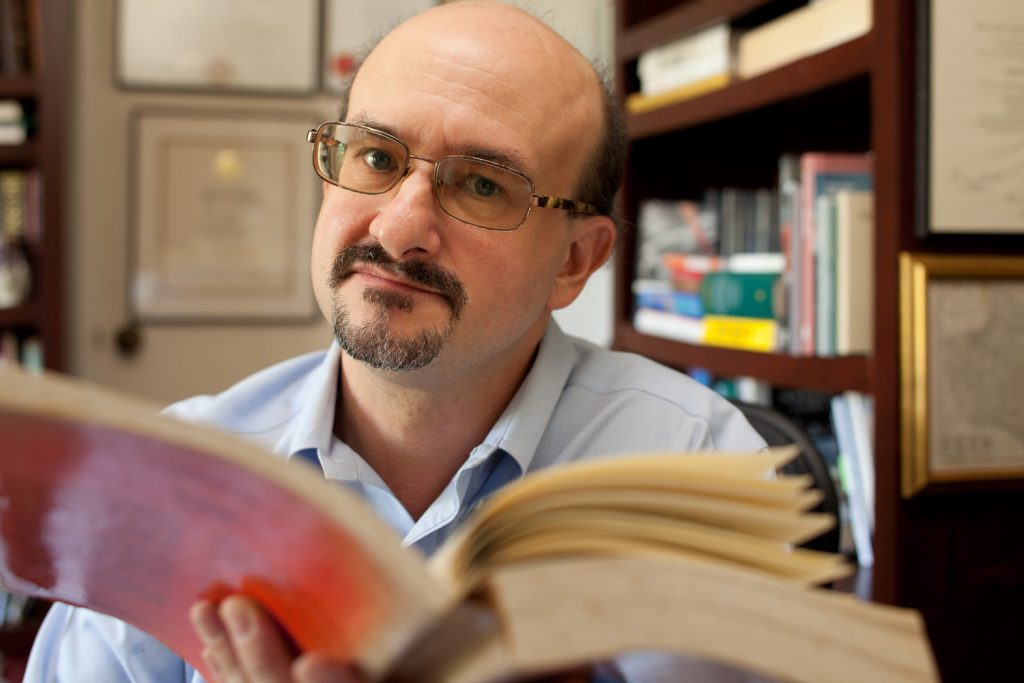
David A. Goldfarb is an independent scholar of Polish literature and literary theory, a literary translator from Polish to English, and a liaison for Polish authors to US publishers. In 2018 he translated feature articles and interviews from Wysokie Obcasy—the weekly women’s supplement to Poland’s main independent daily paper Gazeta Wyborcza—for Newsmavens.com, a pan-European women’s news portal. From mid-2010 to the end of 2013, he was Curator of Literature and Humanities Programming at the Polish Cultural Institute New York, a diplomatic mission of the Ministry of Foreign Affairs of the Republic of Poland. Prior to that he served as Assistant Professor of Slavic Literatures and Comparative Literature at Barnard College, Columbia University.
He holds a doctorate in Comparative Literature from the Graduate Center of the City University of New York as well as an M.A. in Slavic Languages and Literatures from the University of Toronto, and a B.A. in Philosophy from Cornell University and Deep Springs College. He has published articles on Bruno Schulz, Zbigniew Herbert, Stanisław Ignacy Witkiewicz, Mikhail Lermontov, and East European cinema in such journals as East European Politics and Societies, Indiana Slavic Studies, Philosophy and Literature, Prooftexts, The Polish Review, Slavic and East European Performance, and Jewish Quarterly, and he has published book chapters on Jozef Wittlin, Witold Gombrowicz, and Nikolai Gogol and Giuseppe Arcimboldo. He has written the introduction and notes for Tolstoy’s “The Death of Ivan Ilych” and Other Stories and Turgenev’s Fathers and Sons for the Barnes and Noble Classics series, and for the Penguin Classics edition of the The Street of Crocodiles and Other Stories by Bruno Schulz.
Bartek Remisko, Executive Producer
David A. Goldfarb, Host & Producer
Natalia Iyudin, Producer
This project is part of 21-anniversary celebration of Polish Cultural Institute New York.
Partners:
